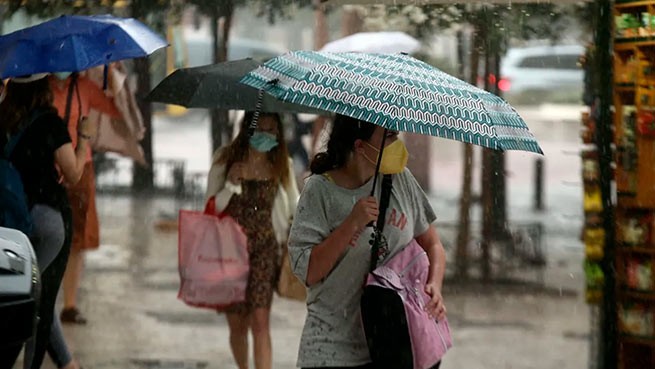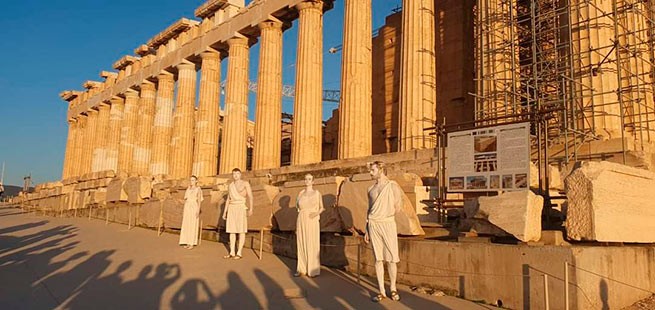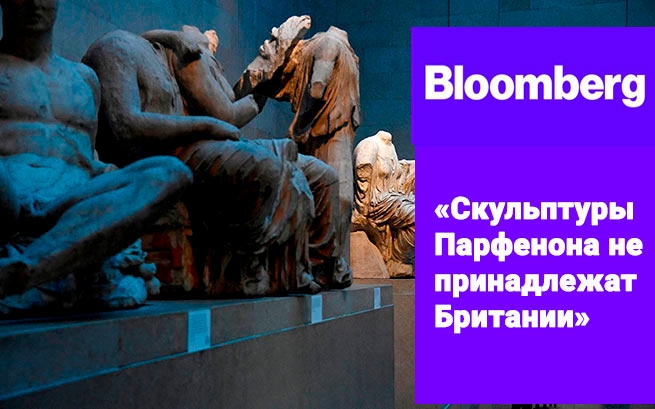“For Britain, this would be an opportunity to develop friendship with Greece and, accordingly, begin to level differences with Europe,” the article says in a well-known American publication.
“Pope Francis last month returned three fragments of the Parthenon to Greece, which were kept in the Vatican Museums for almost 100 years. The time has come for Britain to follow the example of the Argentine pontiff. Next year, when Greece celebrates the 50th anniversary of the restoration of democracy, appears to be an ideal opportunity,” Rachel Sanderson, an Australian politician, wrote in a Bloomberg article on the Parthenon sculptures.
She said the move by the Roman Catholic prelate gave particular weight to the opinion of many that the sculptures, which date back to the 5th century BC, should be returned to Greece.
She quotes Andrea Rurale, director of the arts management program at Milan’s Bocconi University, as saying that “It helped Francis that he had the authority to make this unilateral decision. It allowed him overcome objections of dissenters in the Vatican Museums.
“By contrast, British ownership of the Parthenon marbles – known as the Elgin marbles because Lord Elgin oversaw their removal in 1801 – is based on endless unrest and differences of opinion from countless stakeholders,” says Sanderson, recalling that the prime minister UK Rissy Sunak himself ruled out the possibility of returning the sculptures in accordance with the British law of 1963, which prohibits the disposal of museum exhibits.
“So borrowing the marbles under a rotational agreement based on cultural exchange would be the only way to overcome this legal hurdle,” says Sanderson.
The article mentions the Parthenon Project, a non-profit organization that hopes for a reunion of the Parthenon sculptures and calls on the Greek government and British Museum officials to “agree” on the issue of ownership of the sculptures. The organization is proposing a “cultural cooperation agreement” to return the marbles to Greece and make Greek art available to the British Museum for temporary exhibitions.
But the British Museum, whose controversial collection includes the Rosetta Column, preserved Maori heads from New Zealand and about 200 bronzes from Benin, has indicated that such a “cultural exchange” will not suit Greece, as it recognizes British ownership. Athens claims that the export of marble sculpture was an act of plunder by Lord Elgin prior to the establishment of the modern Greek state,” notes Sanderson.
It is reminded that British government rejects UNESCO recommendation to resume talks with Greece in 2021.
“However, there is an opportunity here, and the Pope is showing the way.” Greece will celebrate the 50th anniversary of the restoration of democracy on July 24, 2024. In honor of this day Britain should consider giving the sculptures freely to the people of Greece. An Act of Parliament would be required, and King Charles III, who often speaks of his closeness to Greece as the birthplace of his father Philip, could be a suitable envoy,” suggests Sanderson, a former member of the South Australian House of Representatives.
“These discussions represent a huge change, given that until recently such a return was unthinkable. Most curators and government agencies have argued that art is a global heritage and is best exhibited in large, international museums. But the return of art stolen by the Nazis, would mark a global rethink,” says Sanderson, referring to Laurence de Carré, director of the Louvre, who “is among the first generation of officials open to cooperation to ‘return works when they are illegally elsewhere’.”
“In the Vatican Museums, the return of the Parthenon marbles is treated as a separate event, not related to the treasury of works of art. And for Britain, this would be an opportunity to strengthen friendship with Greece and, as a result, begin to close the gap with Europe. If then Greece decides to send in exchange for a piece of art in the British Museum, then everything will be fine,” she concludes.







More Stories
Making a mockery of the Acropolis for the sake of tourism
How Plato spent his last night – what the found papyri showed
Eurovision 2024: the first rehearsal of Marina Satti in Malmö has ended